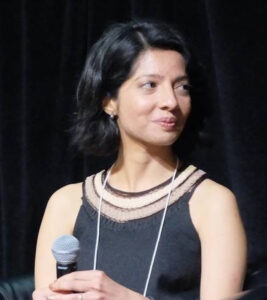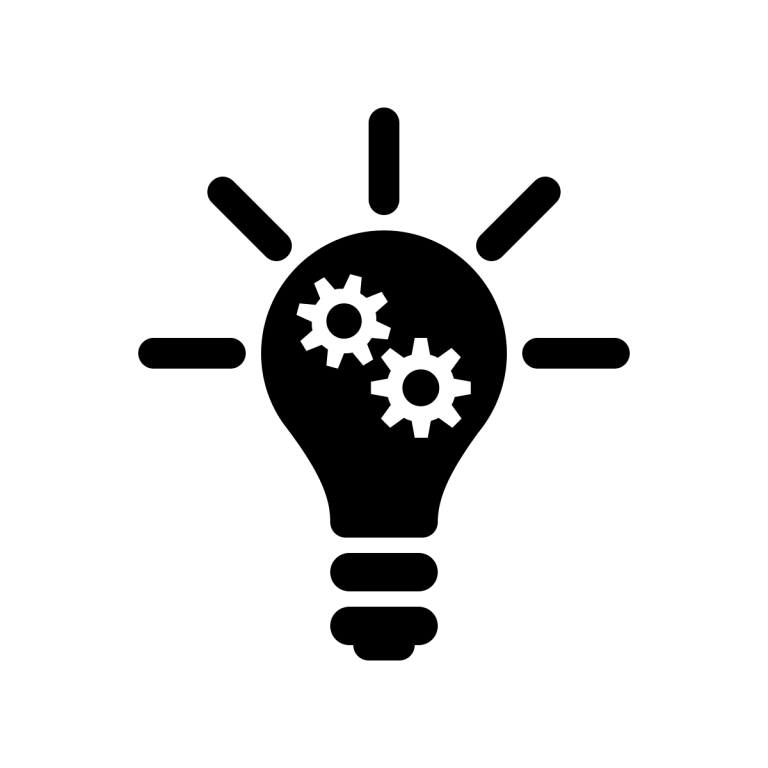
Image Courtesy of Karimah Hudda
As engineers, we have the power to drive systems change, but first we may need to shift how we think about systems ourselves. That means moving beyond isolated technical solutions to embrace what sustainability leader Karimah Hudda calls “ecosystems thinking.”
Ms. Hudda has spent two decades showing us that rapid and large-scale change is possible. She is the founder of Illumine Earth and a former sustainability executive at Nike and Mondelez, and she makes an argument with the potential to transform our understanding of our roles as engineers. In a session she led as a part of the Engineering for Change Fellowship, she argued that the scope and scale of today’s challenges demand a new level of audacity from engineers and from leaders.
The Ecosystem Shift
The problem, she says, starts with how engineers are taught to think.
“In technological fields, we teach systems thinking, not ecosystems thinking,” Ms Hudda explains. “Too many graduates emerge thinking technology is a closed system without considering the people and planet impacts.”
Every system, whether it is a computer, a production line or a data center, sits within the planetary ecosystem. That ecosystem affects and is affected by human communities, natural resources, and environmental conditions. When engineers overlook these ecosystem connections, Ms. Hudda says, we risk creating problems that work against the intended solutions. A data center might solve computing challenges while depleting local water supplies, for example. And an electric vehicle reduces emissions but requires mining that damages communities.
Shifting to a global ecosystem perspective can lead us to take actions that restore balance, and ecosystems flourish when they are in balance. Now, however, “the planetary ecosystem is not at equilibrium,” Ms. Hudda says. Six of nine planetary boundaries have already been crossed, according to the Stockholm Resilience Centre. Climate change, biodiversity loss, plastic pollution, and water stress are current realities.
Conventional wisdom suggests that change is slow, and making the changes needed to solve those issues will take time. Ms. Hudda rejects that truism, however.
“One of the biggest challenges I’ve encountered in systems thinking mindset is that it’s supposed to be complex, glacial and challenging,” she says. “But what I’m going to tell you is it is possible to disrupt that paradigm. We can go very fast. We can move big, good, fast if we believe and if we care to.”
Big, Good Fast Moves
Ms. Hudda shares three examples where coordinated action resulted in rapid systems change.
Colombia’s Ocean Protection: Regional ocean protection was achieved through multi-country collaboration led by Colombia’s leadership, accelerating progress toward protecting 30% of oceans by 2030, a goal set by the UN.
Norway’s EV Revolution: Through coordinated policy, infrastructure investment, and consumer incentives, Norway moved from 50% of new car sales being electric in 2018 to approximately 90% today.
Palm Oil Transparency: Industry-wide mill mapping of approximately 2,000 mills and monitoring via Global Forest Watch Pro created transparent accountability across supply chains, helping stabilize deforestation rates.
The pattern across all three examples shows that bringing the right stakeholders together, understanding the whole system, and moving with coordinated purpose can achieve change at a scale and speed that seemed impossible.
AI as an Ecosystems Challenge
To demonstrate ecosystems thinking in practice, Ms. Hudda uses a case study on artificial intelligence (AI) and data centers. She points out that a 100-word ChatGPT email requires the equivalent of 100 bottles of water, and data centers demand massive amounts of local water for cooling.
“What kind of problems come from the amount of water needed for AI?” she asked the audience. The answers came quickly, including depletion of local water bodies, increased temperatures, loss of biodiversity, disrupted ecosystems, and communities deprived of adequate water access.
But instead of offering simple technical fixes, Ms. Hudda pushes toward ecosystem thinking. Innovations like water recycling and alternative cooling methods are necessary, but incomplete without considering affected communities. “What about communities that were already responsible and didn’t have enough water to begin with? And a data center comes in, what do we do with those communities?” she asks.
One session may not be enough time to solve the AI water problem, but it is the right amount of time to demonstrate a different way of thinking. “When you think about a data center or an AI as a system, it’s so, so critical that we start to look at it as an ecosystem, as part of an ecosystem,” Ms. Hudda says.
Personal Flourishing as Leadership Fuel
Zooming in from the global ecosystem perspective down to the individual, the power to drive systems change begins with personal sustainability. Today, 50-80 percent of workers are burned out, Ms. Hudda says, but we are effective when we flourish.
“Your personal flourishing is the key,” she says. “Make sure you don’t burn out, and make sure you are focusing on your personal flourishing.”
For engineers ready to embrace ecosystems thinking, the path forward may be a shift from isolated systems to planetary connections, while sustaining personal well-being to fuel long-term impact.
If these ideas interest you, explore them through the Flourishing Futures Framework, available at the Illumine Earth website. This toolset helps leaders maintain their effectiveness over the long term. It includes practices such as connecting with nature, cultivating stillness, and staying grounded in purpose.
“Everybody is a leader if they choose to be a leader,” Ms. Hudda says. “Everybody is a visionary leader if they dare.”
For more on systems change and leadership development, visit illumine.earth or connect with Karimah Hudda on LinkedIn. The Flourishing Futures Framework is available as a free resource.
About the Author
Arianna Andino is a Project Coordinator at Engineering for Change. She is also an alum of the E4C Fellowship, trained as an Industrial Engineer specializing in systems optimization, sustainability and engineering education.

